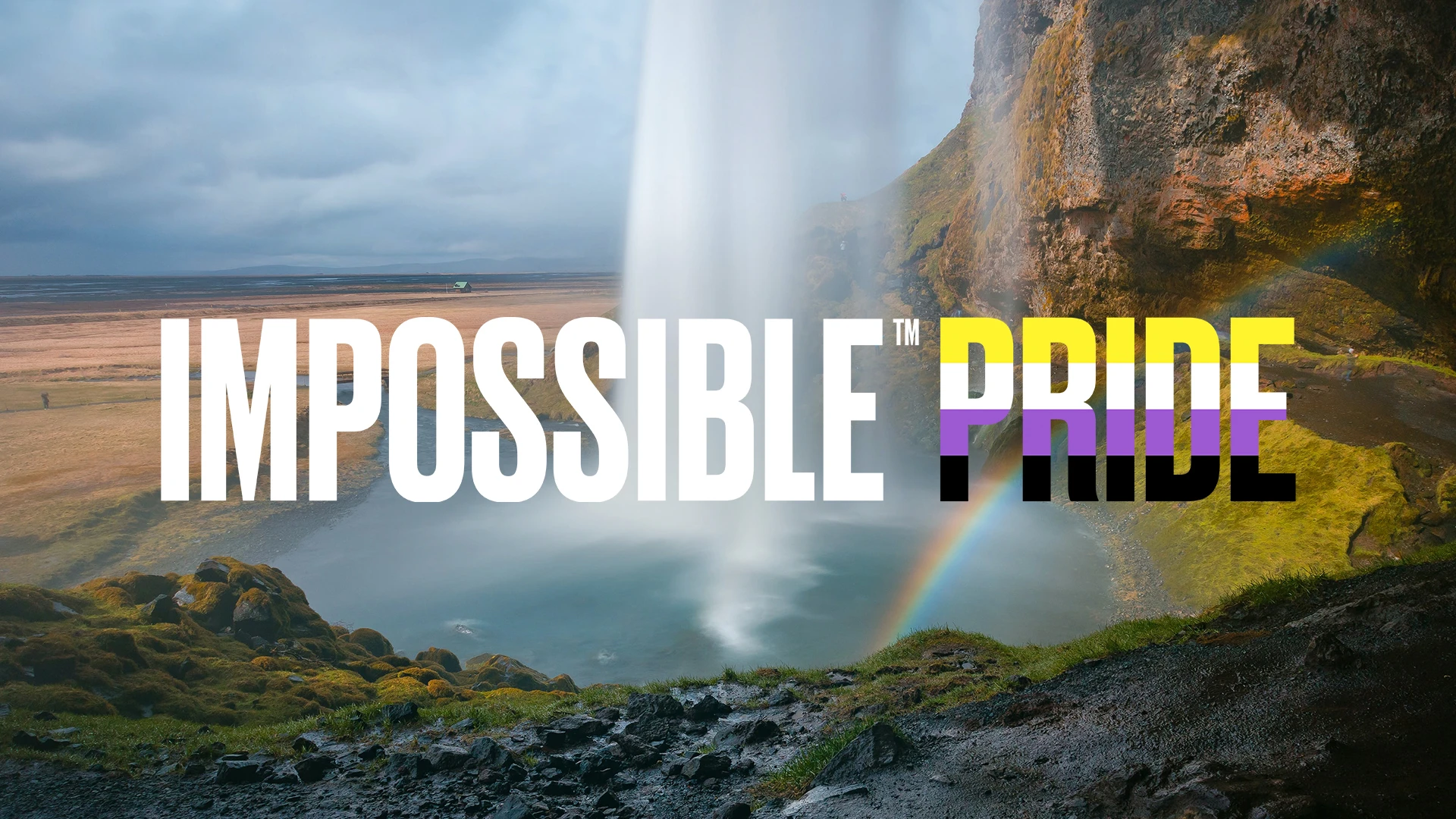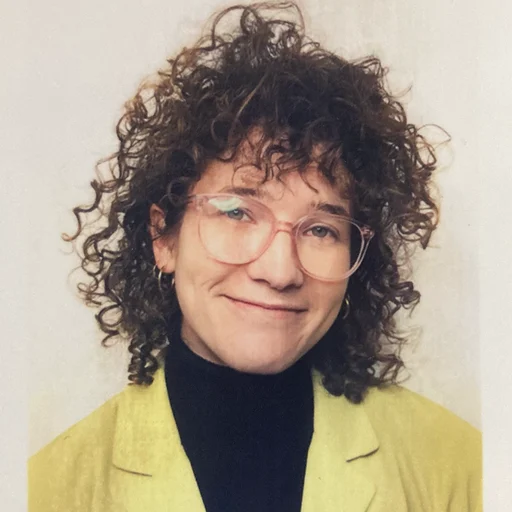(Pride Month)
Making Space for Otherness Everywhere
By Emmet Hunker (They/Them), Senior Consumer Advocate at Impossible Foods

This blog is being shared as part of a three-part series during Pride Month to celebrate and honor a diversity of voices representing Impossible’s LGBTQ+ and Ally experiences. At Impossible, we strive to foster an environment of inclusion for all people and voices that encourage collaboration and innovation to help us achieve our mission.
I distinctly remember the first time I was asked my pronouns. I was waiting in line to use the bathroom at a bar (where most of the positive affirmation in this world transpires), when an old pal introduced me to a friend of hers. Her friend told me their pronouns (they/them), and they asked for my pronouns, which for some reason stopped me in my tracks. Someone was asking me how I preferred to take up space instead of making an assumption based on my presentation. As I struggled to answer their question, I ended up with, “Well they/them kinda feels good.” From that point on, their friend -- who became a good friend of mine -- always referred to me with they/them pronouns. They opened a door for me that I didn’t even know existed.
Asking and using correct pronouns(opens in a new tab) is not where the conversation ends -- but really just where it begins. Recognizing that any person, regardless of appearance, can use any pronoun is a powerful way to challenge the gender binary (a system of gender classification in which all people are categorized as being either male or female). Because that system doesn’t leave room for otherness -- assumptions remain unchallenged and norms are assumed.
When people don’t meet those norms, there’s an expectation for those people (the others) to reveal themselves. Like being a contestant on To Tell the Truth, the other is expected to stand up, come out, and let people know that they’re different. They’re expected to other themselves to maintain the homeostasis of the norm.
That’s what coming out is, and it isn’t easy. It’s a vulnerable and draining experience to come out to anyone. While it is rightfully celebrated as a liberating experience, those of us who live openly under the queer umbrella are often remarked upon as brave for standing in our truth. As an ally, coming out can be seen as something to observe and remark upon, rather than something worthy of understanding and engaging in. But allyship shouldn’t be a one-time congratulations nor a static dispelling of hate (lest it only be for optics). Allyship should be a dynamic contract that we all opt into, to support and consider marginalizations other than our own.
Regardless of how you identify on the gender and sexuality spectrums, I’d bet the package of Impossible™ Burger that’s in my fridge right now that you’ve come out at some point or another. Like that time you had to tell your partner’s grandma that you wouldn’t be eating the carnitas that she made, even though they smell delicious, because you don’t eat pork. Or when the stranger on the plane asked what you do in your spare time and you said, “stand-up comedy”, and he paused before realizing that you were serious and said, “that’s so brave.” Or when your coworker was talking about TikTok and you had to come out to reveal that you’re too old to understand the app -- so they made you an account that you promptly deleted a week later after losing a Saturday to said app. From Tiktok to carnitas, vulnerability lives on a spectrum, and so does coming out.
Those who don’t identify within the gender binary need to come out all the time -- literally every day, if they have the emotional bandwidth. So when we -- as a workplace, as a community, as a society -- create space where norms are disrupted, for instance, by asking everyone their pronouns(opens in a new tab), we create a world for togetherness. A world where assumptions of gender and sexuality aren’t the norm. A world where the assumption isn’t the default. A world where allies enjoy the fruits of queerness by considering the parts of their identity that are worth questioning. A world where space is forged for otherness everywhere.

Based out of Austin, Emmet Hunker (they/them) has worked remotely for Impossible Foods for over three years on the Consumer Engagement Team. They are a member of Impossible’s Pride ERG, and in their spare time, they're a community organizer, producer, and stand-up comedian. They are also the founder and director of the queer art collective, Thee Gay Agenda(opens in a new tab) (whose motto is, celebrating otherness through togetherness).